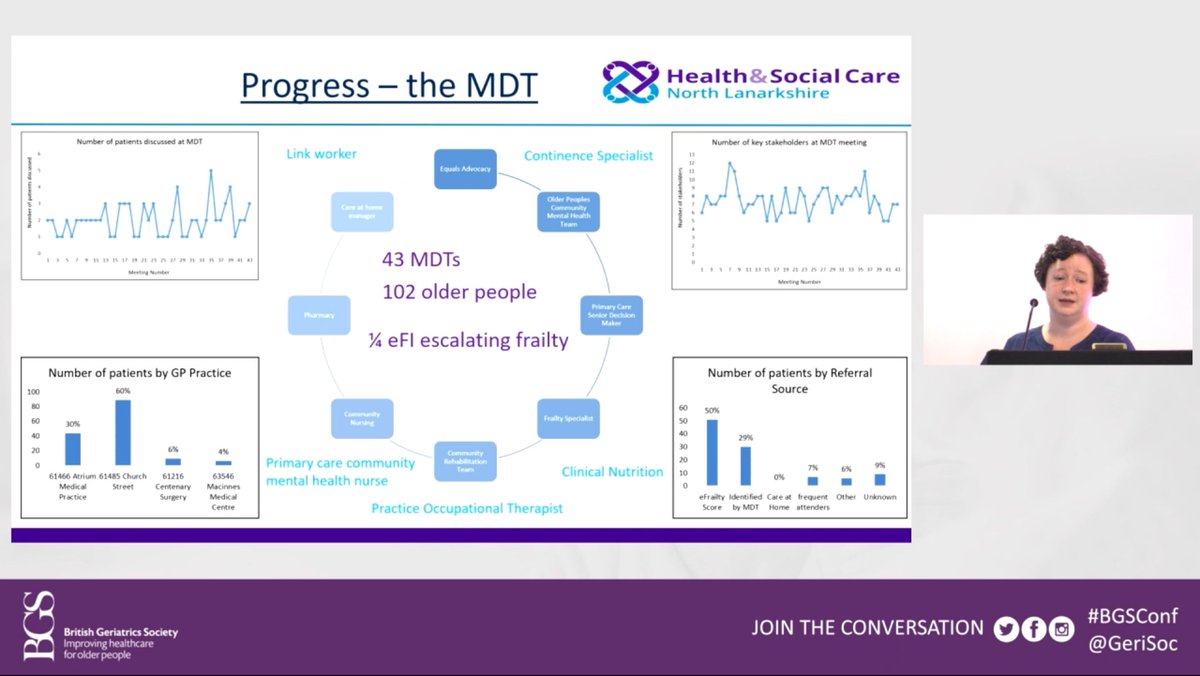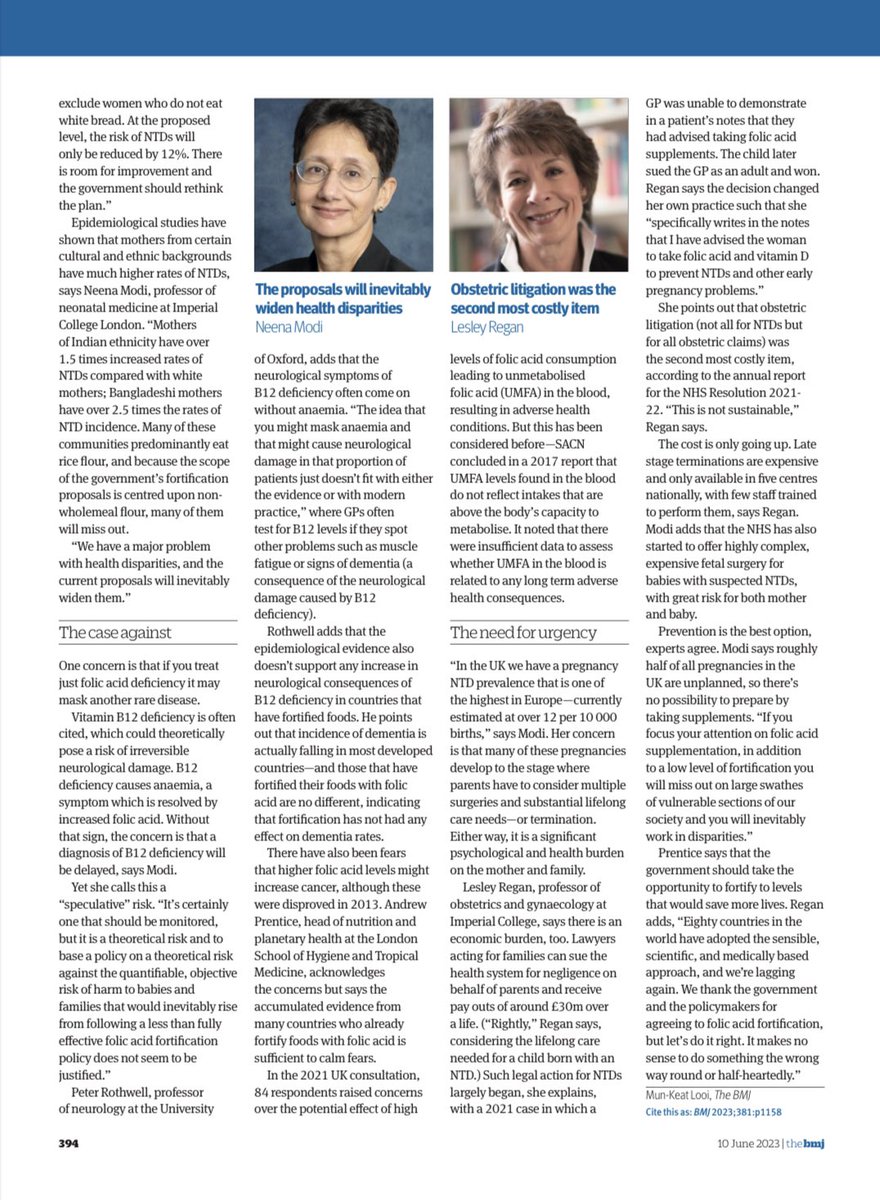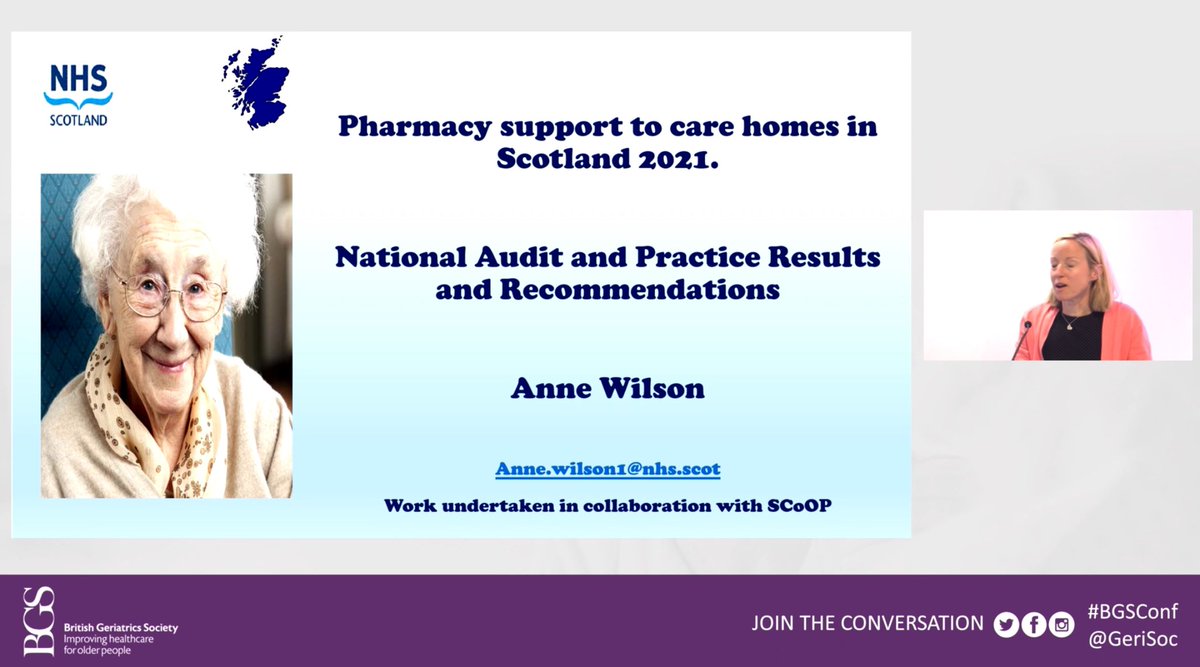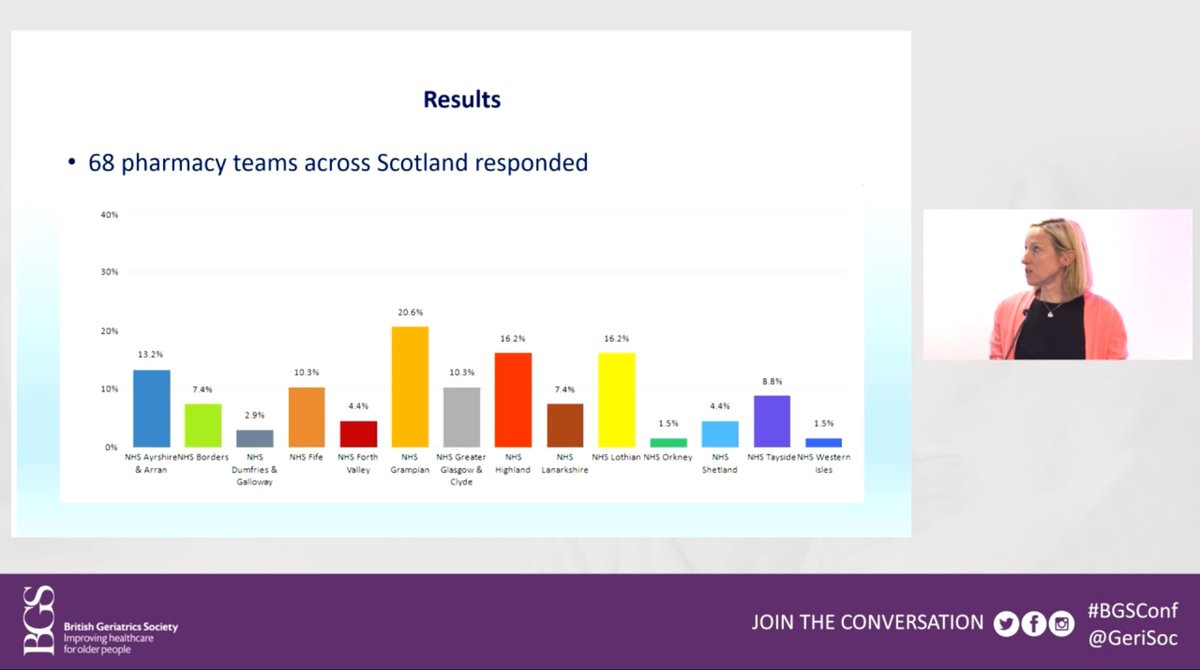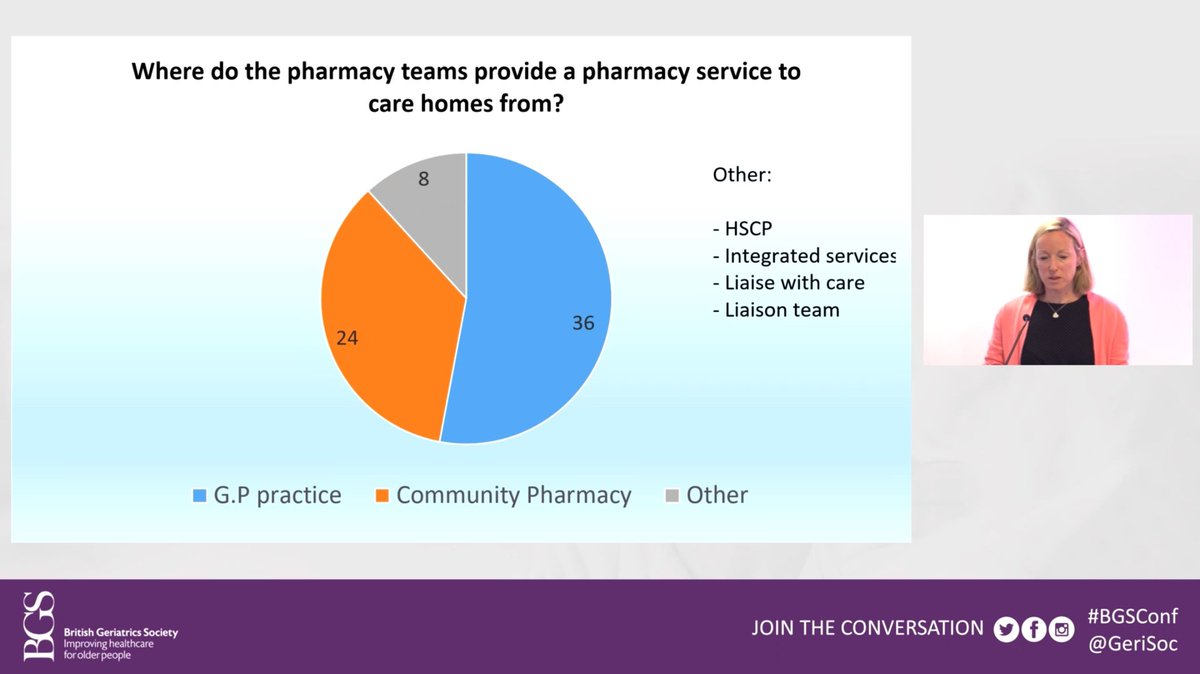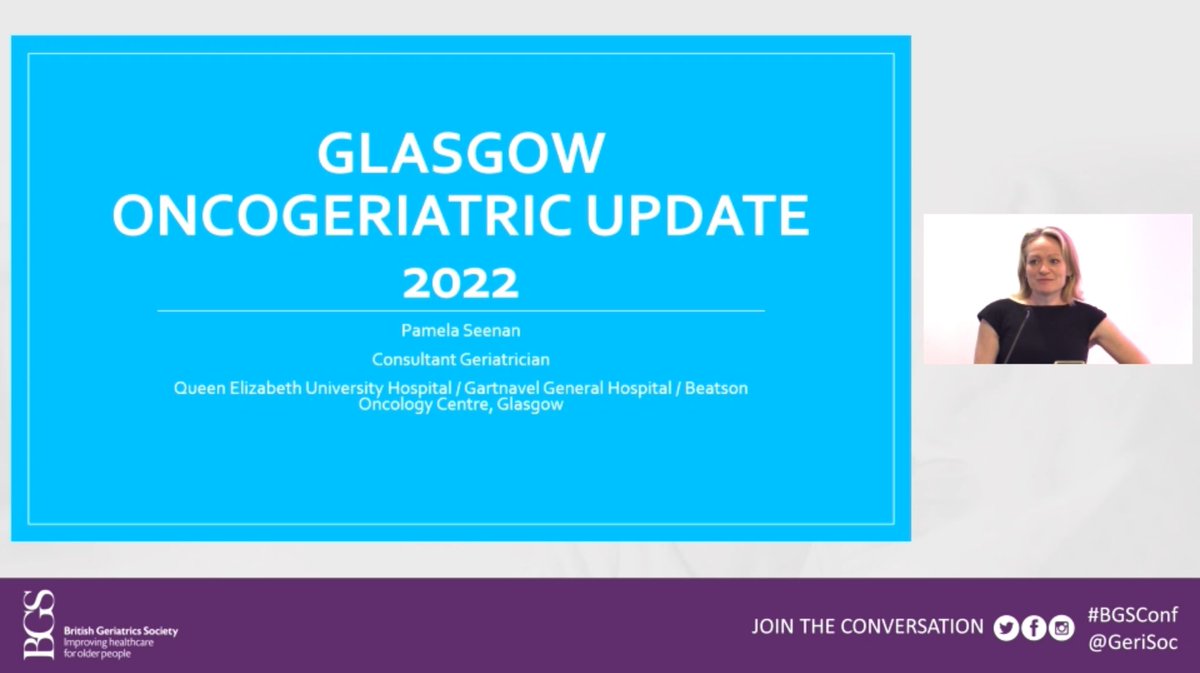Lovely to see @l_whyte at the #bgsconf today in Glasgow!
Lots of great work in @NHSLanarkshire on #Frailty and their work as a community multidisciplinary team. 👏👏



Lots of great work in @NHSLanarkshire on #Frailty and their work as a community multidisciplinary team. 👏👏

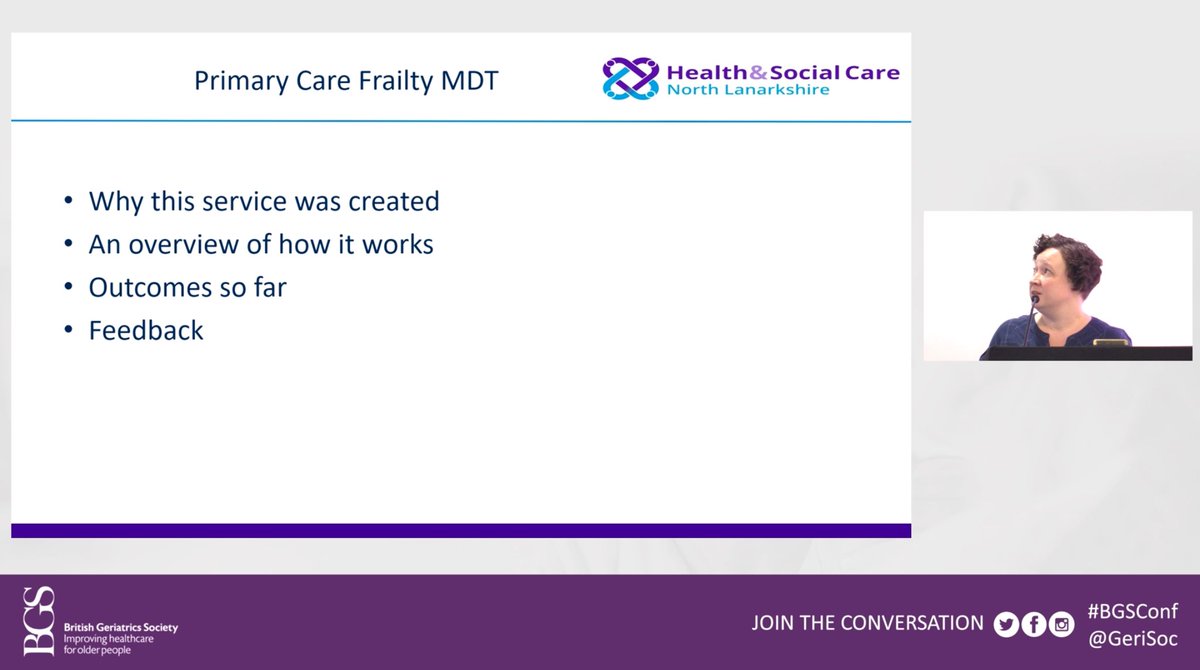


There is research evidence to back up what’s being done. GPs and Primary Care Teams can do this, but don’t have time so having the MDT is working well.
#bgsconf


#bgsconf



The interventions are the sorts of things you might expect, but the impressive thing is that the team made them happen.
Proactive, logical and relevant.
Well done @l_whyte and the team!
#bgsconf
Proactive, logical and relevant.
Well done @l_whyte and the team!
#bgsconf

The team visited older people at home identified using the electronic Frailty Index. A word cloud illustrates some of what they do but there’s a lot more to it even than this!
#bgsconf
#bgsconf

Anticipatory Care Planning is key to good care. The Lanarkshire team demonstrated an improvement here which was excellent.
#bgsconf
#bgsconf

Use of the eKIS (electronic Key Information Summary) is very varied around the country. It’s well used in Lanarkshire though!
👏👏👏 #bgsconf
👏👏👏 #bgsconf
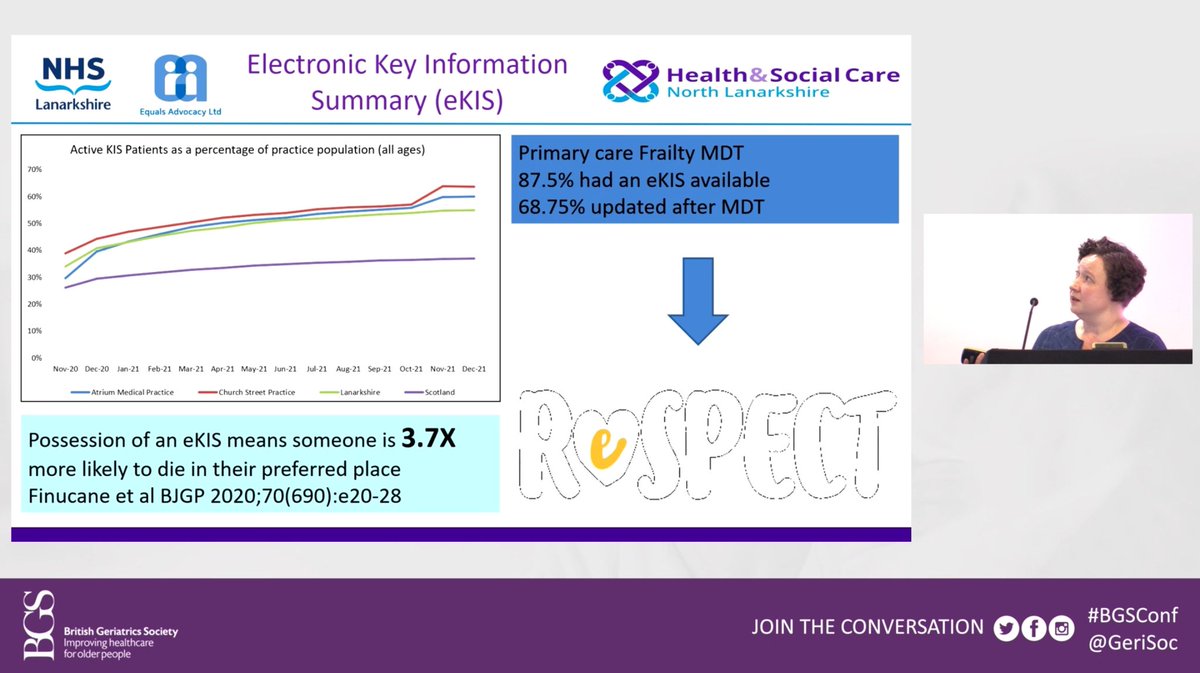
Patients liked having the multidisciplinary assessment in Lanarkshire. Though sometimes they found the assessment quite long!
#BGSconf
#BGSconf

I’ve not come across Force Field analysis before. I quite like it though!
The bubbles in blue are the biggest forces for and against change.
#bgsconf
Always good to learn new things!



The bubbles in blue are the biggest forces for and against change.
#bgsconf
Always good to learn new things!




• • •
Missing some Tweet in this thread? You can try to
force a refresh


